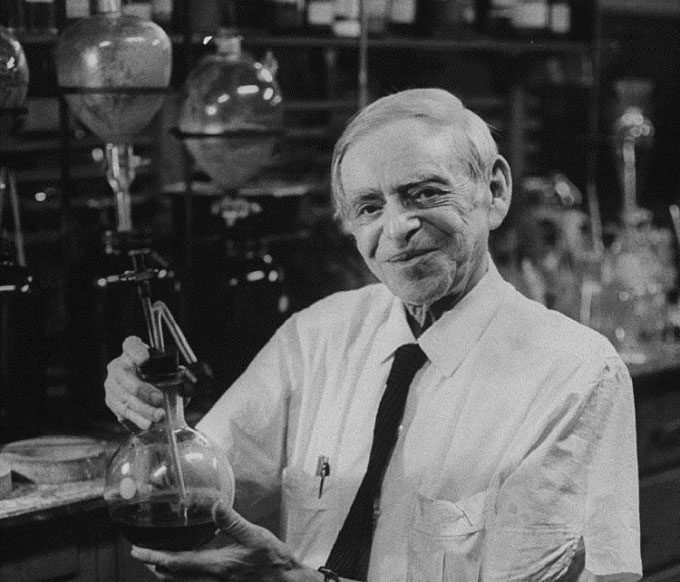At the beginning of the 20th century, Casimir Funk introduced a revolutionary idea – diseases could arise from a deficiency of certain essential nutrients.
The term vitamin, originally spelled “vitamine,” is derived from “vita” (meaning life in Latin) and “amine” (a type of nitrogen-containing chemical compound). This term was coined by Polish-American biochemist Casimir Funk in 1912, when he discovered that the cause of several diseases was the deficiency of specific components in the diet.

Biochemist Casimir Funk, the “father of vitamins.” (Photo: American Institute of Polish Culture).
This discovery, along with research conducted over the next five decades, which included contributions to 140 technical documents and 30 reviews and studies, earned Funk the title of “Father of Vitamins”, while also demonstrating the essential role of vitamins in human health. Funk’s work led to the discovery of 13 vitamins over 35 years, encompassing all the vitamins known today. This work saved countless lives and left a lasting impact on the fields of biochemistry and nutrition.
Casimir Funk was born in Warsaw, Poland, in 1884. As the son of a Polish doctor, his family expected him to follow in his father’s footsteps. However, he aimed for a doctorate in chemistry at the University of Bern, Switzerland, which he achieved in 1904 at the age of just 20. Funk then became a biochemist at the Pasteur Institute in Paris and continued his work at the Wiesbaden City Hospital in Germany, the University of Berlin, and the Lister Institute in London. He immigrated to the United States in 1915 and held several important positions in universities and industry in New York.
In 1912, Funk identified four diseases: Beriberi (which can affect the circulatory and nervous systems), Scurvy (causing decay in teeth and gums), Pellagra (leading to complications such as dermatitis), and rickets, all stemming from a deficiency of certain nutrients. “We will speak of vitamine Scurvy and Beriberi, as these are the substances that prevent these specific diseases,” Funk wrote in his research.
His view that diseases could arise from a lack of essential nutrients, rather than solely from infections or toxins, was revolutionary, especially at a time when the germ theory was predominant. This theory suggested that certain diseases originated from pathogenic microorganisms. However, Funk proposed that certain vitamins needed to be included in the human diet, and that even a very small amount could help prevent and treat disease.
In 1912, he published his study “The Causes of Deficiency Diseases” in the Journal of State Medicine. In 1914, he wrote a book titled “Die Vitamine” on this topic. In the following years, amid the backdrop of two world wars, Funk continued his research and frequently traveled between Europe and the United States.
Over time, other researchers found that Funk’s original theory was not entirely accurate. Not all vitamins are amines. For example, vitamin D is synthesized when skin is exposed to ultraviolet light and is essentially a steroid hormone. This is why the letter “e” in “vitamine” was dropped to form the term “vitamin” as we know it today. Furthermore, vitamins do not solely affect one disease, as Funk initially proposed. For instance, a deficiency in vitamin D is related to many chronic diseases, including bone metabolism disorders, heart disease, and diabetes.
Later, Funk researched animal hormones and the chemical properties of diseases such as cancer and diabetes. He also developed better methods for commercializing drug production. Funk passed away in New York in 1967. For his contributions to the field of nutrition, he was posthumously awarded the Nutrition Hall of Fame award.


















































